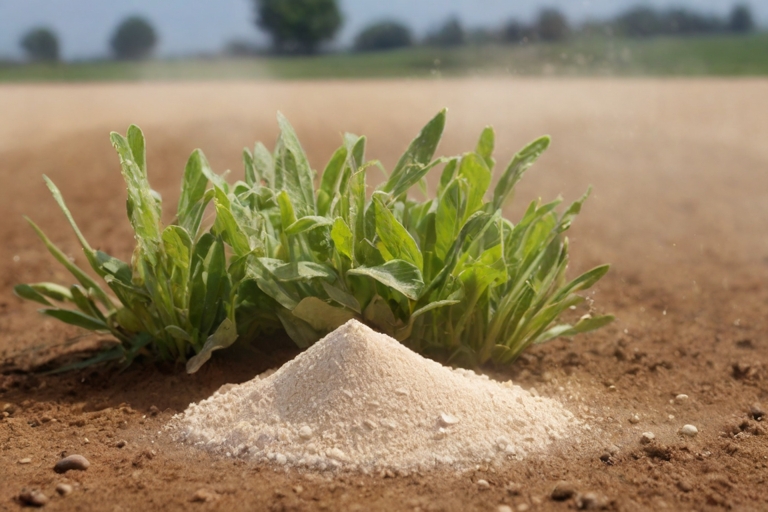Precipitated silica plays a crucial role in the agriculture and pest control industry due to its unique physical and chemical properties. By creating a protective layer on the surface of plants, it safeguards them against pathogens, pests, and environmental stresses.
Properties and Effects of Precipitated Silica on Plants
- Increased Resistance to Pests and Diseases: Precipitated silica creates a physical barrier on the plant’s surface, preventing the penetration of fungi, bacteria, and viruses. This layer can also deter some insects from feeding on the plant.
- Strengthened Cell Walls: Precipitated silica strengthens the plant’s cell walls, increasing its resistance to pathogens and environmental stresses.
- Reduced Water Loss: By forming a hydrophobic layer on the leaf surface, precipitated silica reduces water evaporation, thus increasing the plant’s drought resistance.
- Decreased Pesticide Uptake: In some cases, precipitated silica can reduce the plant’s uptake of pesticides, leading to a decrease in chemical pesticide use.
- Improved Crop Quality: Precipitated silica can increase crop size and quality.
Mechanism of Action of Precipitated Silica
Precipitated silica forms a thin, uniform layer on the leaf and stem surfaces, protecting the plant from external factors. Due to its porous structure, this layer allows water and nutrients to pass through while preventing the entry of pathogens.
Applications of Precipitated Silica in Agriculture
- Protecting Plants from Pests and Diseases: Precipitated silica is used as a natural pesticide and plant immune system booster.
- Reducing Stress Caused by Salinity and Drought: Precipitated silica can help plants tolerate salinity and drought.
- Improving Crop Quality: Precipitated silica can increase crop size, weight, and quality.
- Reducing the Use of Chemical Pesticides: The use of precipitated silica can help reduce the use of chemical pesticides in agriculture.
Types of Precipitated Silica Formulations
Precipitated silica is formulated in various forms such as powder, granules, and water-soluble solutions. These formulations can be applied through foliar spraying, irrigation, or mixing with chemical fertilizers.
Conclusion
Precipitated silica, as a natural and environmentally friendly material, plays a significant role in sustainable agriculture. Its use can reduce the use of chemical pesticides, increase plant resistance to environmental stresses, and improve crop quality.
